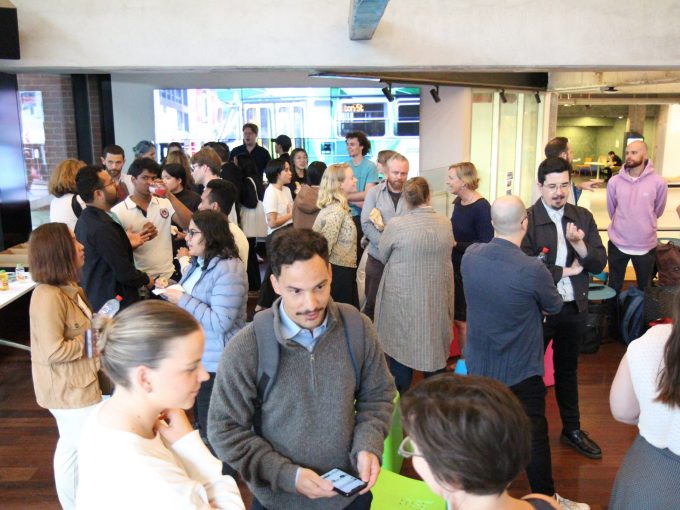A team of students from RMIT’s Urban Design Project course have been named among the winners of the C40 Cities’ international Students Reinventing Cities – Melbourne competition. The winning team, Planscape, was made up of 4th year urban planning students Carla Caruso, Anabel Coffey, Sinead Fortune and Jake Cleve and landscape architecture student Andrew Sicilia.
The competition, part of the global Reinventing Cities competition initiated by the C40 Cities Climate Leadership Group, seeks to transform underutilized sites in middle-ring suburbs through sustainable, community-focused projects to drive resilient urban regeneration. Planscape’s design addressed this focus while also responding to the Victorian Government’s 20-minute neighbourhood strategy.
The students undertook the project as part of the Urban Design Project subject, open to 4th year undergraduate planning students. Course co-ordinator and lecturer Dr Mittul Vahanvati provided intensive coaching to the students who worked in multi-disciplinary teams of landscape architecture and urban design students. This was a highlight for winning team member Jake Cleve, “What excited me the most about this project was the opportunity to work collaboratively across disciplines, mimicking exactly how a project like this would be undertaken in a professional setting.”
The teams also had real clients, including DELWP 20-minute neighbourhood, Maroondah City Council and City of Melbourne.
The winning design, for the Eastfield Shopping Centre site in Croydon South, proposed placing a busy intersection underground and rebuilding the community around this new space, to offer new cultural and recreational spaces, job opportunities and living densities, and create an accessible, walkable town centre.
“This is a great recognition of the quality of student work produced in the Sustainability and Urban Planning discipline at RMIT!” Dr Vahanvati said, “All the students developed creative ways of navigating the complexity of an existing built environment for consolidating them, cooling them, making them thrive and climate resilient.”
Members of the winning team acknowledged the challenges of the project, but all found it ultimately rewarding. “The hardest thing about the project was to make plans as creative as possible whilst ensuring feasibility,” Anabel Coffey said, “but it was exciting being able to put my urban planning skills to good use and create a new thriving neighbourhood for Croydon South that the nearby public will enjoy and benefit from.”
Landscape architecture student, Andrew Sicilia, saw the project as a challenge to rethink his approach to design, “The competition allowed me to express and challenge myself to think beyond conventional practice to envision a design which is encompassing of sociological, environmental and economic factors for the benefit of the residents today and tomorrow.”
On top of the recognition of the excellent work of the student team, the winners will also be invited to present their project to business leaders, city officials and leading climate organisations in a virtual event and be invited by the city to stay involved in an advisory role regarding future projects in the area.
Dr Vahanvati believes the award is testimony to the importance of teaching urban design through real-life projects. “Being recognised through international awards like C40 makes me proud as an educator, as I am able to contribute to the future of our built environment by shaping the minds of future planning professionals. I feel that my courses have given students a taste of the complexity of consolidating and greening middle ring suburbs while considering broader issues of inequity, urbanisation and climate change.”





